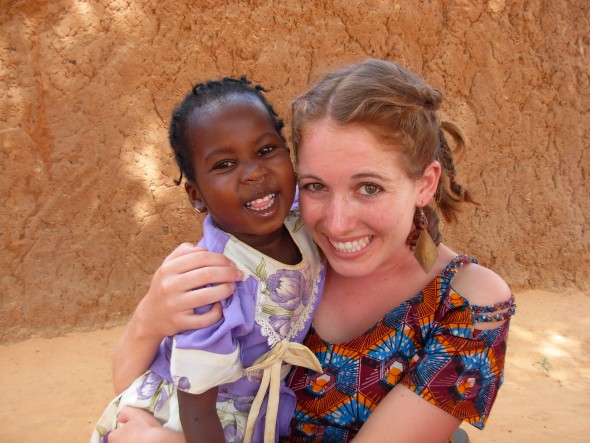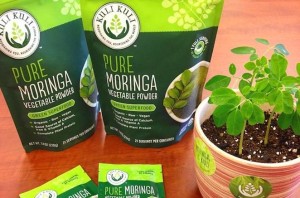As founder of food company Kuli Kuli, Millennial Lisa Curtis is on a mission to better the world through the nutritional superfood, Moringa. Inspired during her experience as a Peace Corps volunteer, Lisa brought word of the powerful plant back to the States and created a social enterprise to provide Moringa products to the masses, while supporting the livelihood of communities where the tree is grown.
As one of the most nutritious plants on the planet, moringa is packed full of protein, vitamin A, potassium, calcium and vitamin C. Kuli Kuli’s Pure Moringa powder, Moringa Superfood bars, and Moringa energy shots are now carried in Whole Foods locations nationwide.
As our Millennial Maker, Lisa talks about the superfood being dubbed the “new kale”, the impact that Kuli Kuli is having on the lives of women in West Africa and Haiti, and her journey to bring Moringa mainstream.
How would you define the purpose of Kuli Kuli?
The purpose of Kuli Kuli is to use Moringa as a tool to improve nutrition and livelihoods around the world. We want to educate people on the benefits of the amazing superfood Moringa, while empowering women to make a living by growing and selling the plant through our nonprofit partnerships.
We are currently sourcing Moringa from Ghana and Haiti. In both countries, we are not only providing a sustainable livelihood for farmers, but the Moringa plant is also contributing to reforestation. Since Moringa can be harvested within 60-90 days, farmers are incentivized to cultivate the crop, instead of extracting value by cutting down trees to sell them for charcoal (a reality that has attributed to the 98% loss of Haiti’s original forest).

What inspired you to start the company?
After graduating from college, I joined the Peace Corps and began working at a small community health center in Niger, West Africa. Niger has one of the highest percentages of malnourishment and as a vegetarian, I was struggling to find foods that provided me with energy and adequate nutrition. One of the local women recommended that I try Moringa and gave me a bag of “kuli-kuli” – a snack consisting of fried peanut balls and Moringa leaves. I instantly started feeling better and the plant became a key part of my diet until I left Niger.
I moved to India shortly afterwards where I was exposed to the world of social enterprise. I was very surprised that although the majority of the world’s poor are subsistence farmers, so few social enterprises focused on agriculture. When I returned back to the U.S and started researching Moringa, I found that USAID and WFP were promoting various growing projects. The challenge was that once the funding for the project ended, people stopped growing the plant because there was no longer a market for it. That’s when the idea for Kuli Kuli came to be!
To continue reading this post from our partner Purpose Generation, click here.









